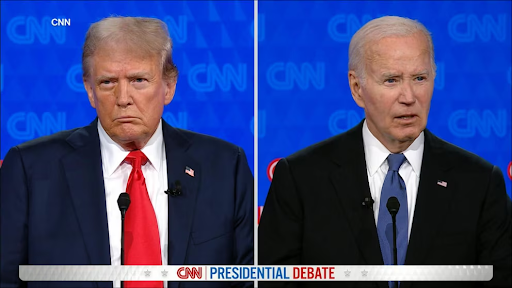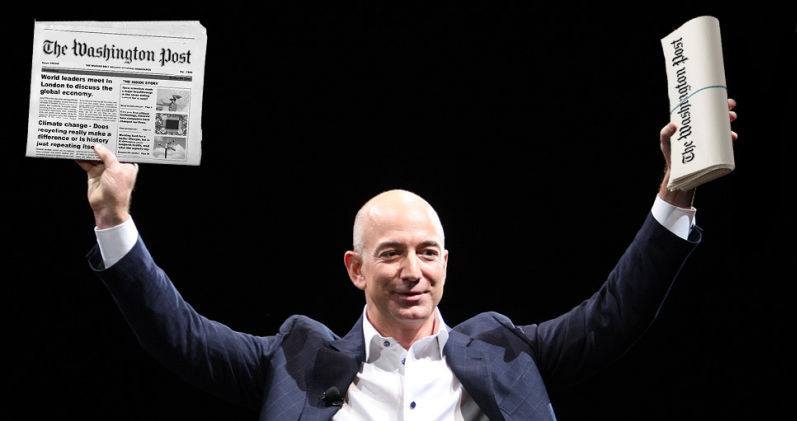The first presidential debate of the 2024 United States election cycle, held on June 27, displayed marked differences between President Joe Biden and former President Donald Trump.
Biden, already unpopular among left-wing voters because of his perceived inefficiency and his continued support for the Israeli government, was not able to deliver any particularly inspiring or firm responses to Donald Trump’s repeated ad hominem attacks and his typical exaggerations. The former president maintained the upper hand throughout the debate, not through outstanding debate prowess but through doubling down on various prideful and alarmist statements that have since been disproved by numerous fact checks. The 90 minutes were filled with moments when the candidates cited contradictory declarations as fact, with both Trump and Biden embellishing some facts and events. This included when Trump took credit for “the largest tax cut in history,” and when Biden claimed that the National Border Patrol Council endorsed him. Trump’s 2017 tax cut was actually the seventh largest in U.S. history, while the Border Patrol stated shortly after Biden’s comment that they “never have and never will” support him.
The moderators, CNN anchors Dana Bash and Jake Tapper, asked the expected questions about issues like the economy, abortion access, immigration, border security, foreign policy, the opioid crisis and the candidates’ ages. They received frequently tangential responses involving topics from golf handicaps and Rep. Nancy Pelosi to WWIII and international perception of the U.S.—with Trump saying other countries perceive the U.S. as “very stupid people” and Biden saying it is “the most admired country in the world.”
However, although neither candidate inspired much confidence, Trump surpassed Biden in energy and boldness. The former president was able to mask false claims and fallacies through his signature black-and-white blanket statements that oversimplified complicated topics, appealing to undecided voters searching for an easy solution. Like Biden, he made mistakes and delivered vague responses—replying “I’d have to see” to the question of whether he would support the creation of an independent Palestinian state. However, his maintained self-assurance set him apart from Biden, who, besides the occasional “I have never heard so much malarkey in my whole life,” remained largely passive. The result? Biden continues to be painted as feeble and incompetent, while Trump’s concerning plans for his presidency, which he has been clear about, are overlooked. These plans include “the largest domestic deportation operation in American history,” a ban on travel from Muslim-majority countries and changes to public schools’ curricula, including banning education around critical race theory, gender and sexuality.
In a system where only two candidates have a realistic shot of winning, the best option ends up being the lesser of the two evils; in this case it is Biden, who doesn’t have the charisma or popularity necessary to win against Trump. The Democratic Party will officially nominate their candidate at the Democratic National Convention, which will be held from Aug. 19-22. While the nominee is expected to be Biden, many Democrats have expressed disapproval following this debate. The wisest decision would be to choose a more inspiring candidate who can stand up to Trump and regain the votes lost since 2020.









